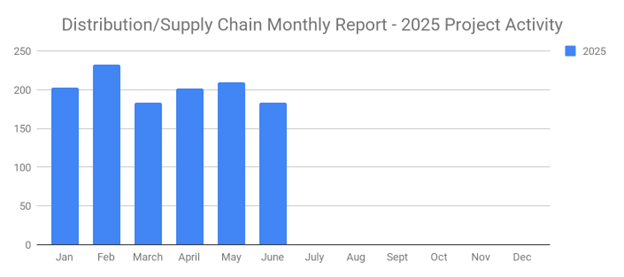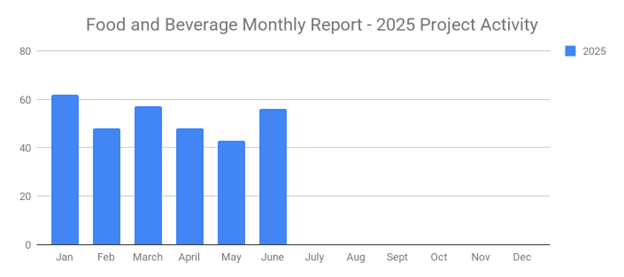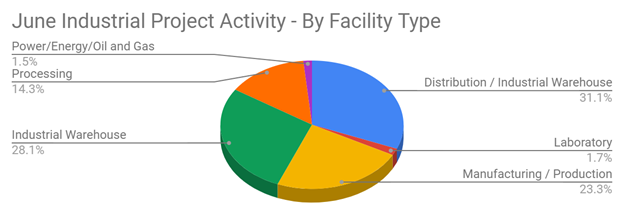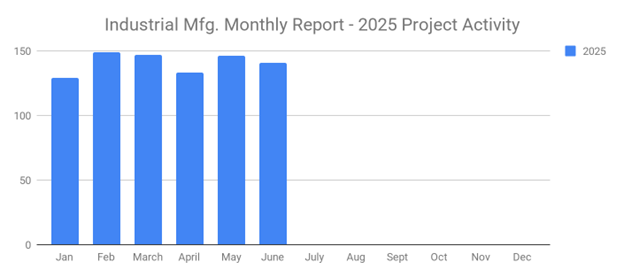
Not all of your B2B company's sales will come from new buyers. Some of them will inevitably come from existing buyers. Research, in fact, shows that the average success rate of selling to existing buyers is 60% to 70%, compared to just 5% to 20% for new buyers. With sales account management, you can nurture your B2B company's existing buyers so that they continue to make purchases. Here are 10 tips for B2B sales account management.
#1) Prioritize Key Accounts
Prioritizing key accounts can give your B2B company the upper hand over its competitors. Key accounts are your B2B company's most valuable buyers. They don't necessarily have to spend the most money. Rather, key accounts offer the greatest potential. They are more loyal, easier to convert and provide more long-term value than other buyers. By prioritizing key accounts, you'll achieve greater success with account management.
To identify key accounts, consider the following:
- Business's budget
- Buyer's Job title
- Years in business
- Expected growth
- Loyalty
- Customer lifetime value (CLV)
- Demographics and overall buyer profile
#2) Identify Pain Points
Buyers will likely experience problems that hinder or otherwise restrict their growth. Known as pain points, you should try to identify them. Account management is all about helping your B2B company's existing buyers succeed and, ultimately, convincing them to stay with your B2B company. If you know a buyer's pain points, you can offer a product or service as a solution.
#3) Cross-Sell Products or Services
Account management offers an opportunity to cross-sell products or services. Cross-selling is a sales tactic that involves pitching a product or service that's related to another product or service. Account management, of course, occurs after a buyer has already made a purchase. You can evaluate the buyer's purchase history, and with this information, you can cross-sell related products or services to him or her. Cross-selling is an easy way to generate more sales from your B2B company's existing buyers, so don't omit it from your account management strategy.
#4) Offer a Dedicated Account Manager
Another tip is to offer a dedicated account manager. If a buyer needs help or has a question, he or she will know who to contact. The buyer won't have to call your B2B company and ask for an account manager. Rather, the buyer can call his or her dedicated account manager directly. Dedicated account managers can handle multiple buyers. Nonetheless, each buyer will be assigned a single dedicated account manager. With a dedicated account manager, buyers will feel assured knowing that a representative is just a phone call away to answer their questions.
#5) Confirm Buyers' Information
When managing accounts, don't underestimate the importance of confirming buyers' information. A buyer may initially provide your B2B company with the correct information. After a while, though, some of this information may become inaccurate. It's estimated that the average rate of decay for B2B data is about 2% per month. Over the course of a year, for instance, you can expect to lose about 24% of your B2B company's data. Confirming buyers' information will allow you to correct any bad data records. Maybe a buyer's phone number is wrong, or perhaps his or her job title has changed. Regardless, you can confirm buyers' information to correct instances of bad data.
#6) Build Relationships
Account management is more than just selling to existing buyers. While you can certainly pitch products or services to existing buyers, you can also build relationships with them. Building relationships is arguably more important than direct selling. Strong relationships will encourage higher retention rates. Buyers who have a strong relationship with you -- or with another dedicated account manager -- will typically stay with your B2B company longer than those who have a weak or nonexistent relationship.
#7) Check In Regularly
Checking in with buyers on a regular basis can improve your B2B company's account management strategy. At least once a month, for instance, call existing buyers to see how they are doing. You don't have to pitch any products or services during these check-in calls. Instead, touch base with buyers by inquiring about their businesses' operations. It's a welcome gesture that most buyers will appreciate. At the same time, you can learn more about the unique needs of buyers by performing these check-in calls.
#8) Personalize Messages
You should personalize messages with buyers. Whether you're emailing or texting a buyer, try to add some form of personalization to it. Using the same message for all buyers creates the impression of spam. Upon seeing a generic message, buyers may immediately discard it. Or worse, some buyers may mark the message as spam. Personalizing your messages will prevent this from happening while allowing you to reach more buyers.
Why do you need to create personalized messages exactly? Aside from reaching more buyers, it will help you build stronger relationships with them. Creating personalized messages shows buyers that you care about them. You can mention buyers' first names, and you can talk briefly about their business. As buyers read your personalized messages, they'll feel a stronger connection to you and, ultimately, your B2B company. Therefore, you should include personalization in your account management strategy.
#9) Climb the Corporate Ladder
Not all buyers are decision-makers. Some of them are lower-level workers who relay information to a higher-level worker, such as a C-suite executive. Furthermore, there are oftentimes multiple decision-makers involved in a typical deal. When managing accounts, try to work your way up the corporate ladder. You can inquire about the buyer's business and who's responsible for making purchase decisions. Using this information, you can find other decision-makers at the buyer's business.
#10) Analyze Account Performance
Account management requires analytics. You'll need to analyze the performance of accounts and their respective buyers. With Customer Relationship Management (CRM) software, performance analytics is a breeze. You can track each account automatically with CRM software. You can even set up CRM software to track communications, sales and other criteria. And as you collect this data, you can easily analyze account performance.
But Remember...
It is important to keep feeding the funnel with quality sales leads. Be sure to open a free account in order to view project reports. These critical project reports provide the insights needed to begin a new sales cycle fast.
What to learn more? Get in Touch
Latest Posts
-

June's New Distribution and Supply Chain Planned Projects Return to March’s 183 Confirmed Figure
-

Food and Beverage Rebounds with 56 New Planned Projects Igniting Growth After Decline
-

June 2025’s New Industrial Construction Projects Grew 7% Month-Over-Month
-

Q2 Industrial Manufacturing Soars 31% for Planned Projects Over $100M; June Planned Industrial Projects Hit 141

